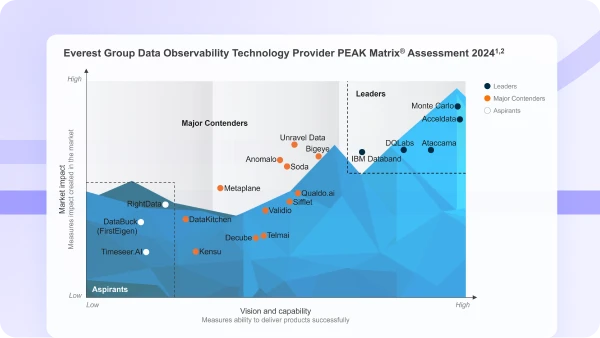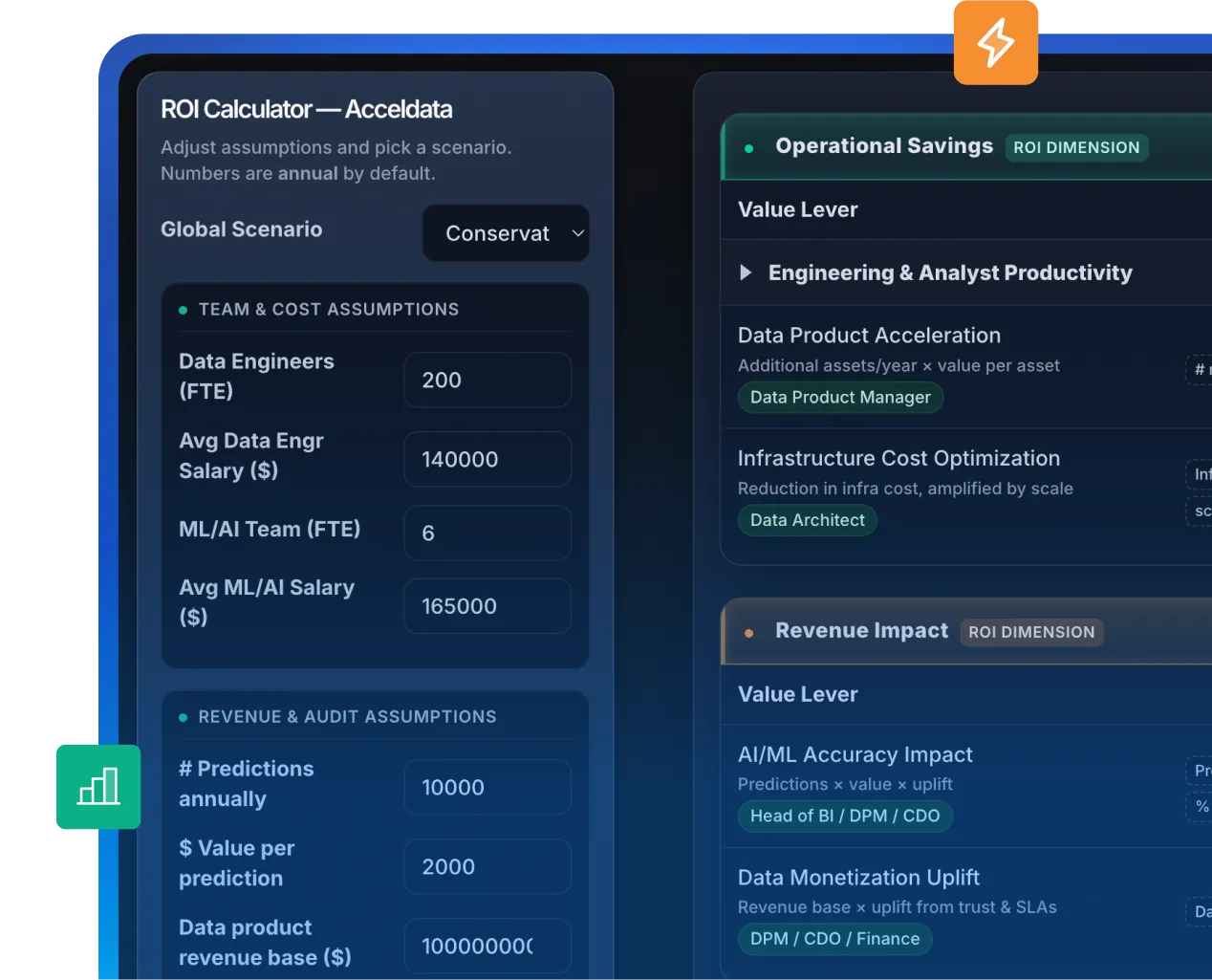
Bridging Data and Decisions at Nestlé
How Nestlé aligns business and engineering using Acceldata for analytics reliability —ensuring data trust, accelerating decisions, and scaling insights across global teams.























Leverage Points in Retail/CPG Data Operations




Achieve Data Excellence with Acceldata
Accurate Inventory Management
Detect anomalies in incoming data from various distributed inventory management systems, retailers, and distributors. Identify discrepancies between inventory records and physical stock.
Build accurate demand forecast models to avoid costly out-of-stock, shelf out-of-stock and excess inventory. Improve data quality, detect and correct for data drift, freshness, consistency and other input parameters that impact your model strength.
.gif)

Better Sales Recommendation Engine
Ensure your Sales Recommendation Engine operates on accurate and complete data. Identify data processing discrepancies across your systems and proactively detect anomalies, such as low volume on incoming files, partial/incorrect data, missing data, deviations in POS information, and other low-fidelity signals that can impact your SRE and lead to revenue loss.
Optimize Supply Chain
Reconcile data from sources such as logistics partners, distribution centers, and receiving docks as they flow through various stages in your data pipelines.
Immediately detect and alert on anomalies or failures in data processing workflows (like slow-running jobs or failures in ETL processes), minimize latency and ensure decision makers have timely and accurate data.

Driving Efficiency and Profitability with Data Observability in CPG
Optimize Your Supply Chain, Inventory, Customer Experience, and Revenue with High-Quality Data.
Get Whitepaper

Stop Revenue Leakage
Avoid mispaid trade promotions by detecting anomalies such as discrepancies between actual sales and reported sales, missing promotional data, or unexpected variations in claim amounts. Reconcile data flow between systems and tables, profile specific columns for anomalies and apply other sophisticated checks and balances.
Continuously audit and reconcile sales orders, deliveries, and invoices to prevent invoice discrepancies and bad payments. Identify inconsistencies between these datasets, such as undelivered items that were invoiced or delivered items not billed, to flag potential revenue












.webp)





.webp)
.webp)











































%201.svg)






















































